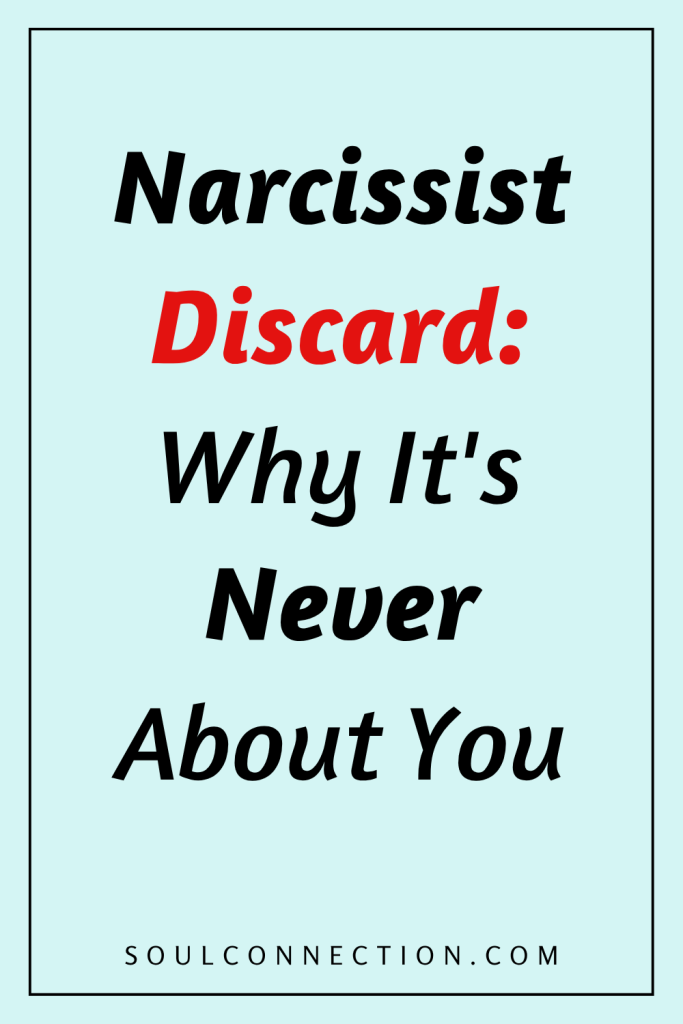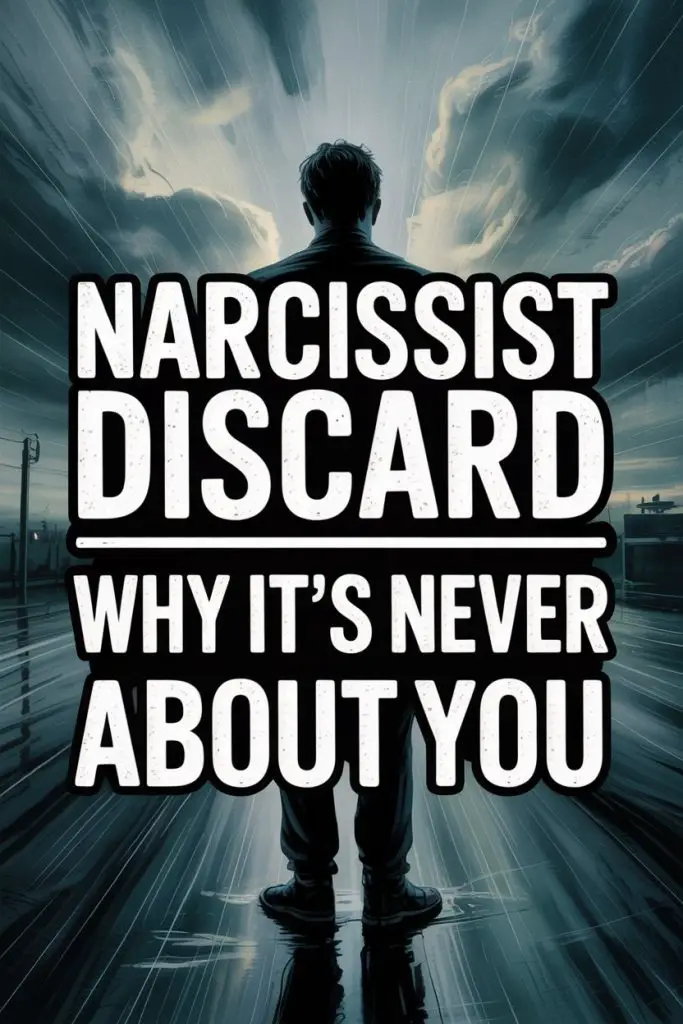If you’ve found yourself limping away from a relationship with a narcissist, blinking in the daylight and wondering if you accidentally starred in a soap opera, you’re not alone.
The abrupt, cold ending (or string of endings, because narcissists are nothing if not fans of dramatic encores) can leave even the most self-assured among us feeling like a chewed-up dog toy.
Let’s set the record straight: the discard is never about you. No, really—stop scrolling through your texts at 2 a.m. and looking for clues.
Let’s pull back the curtain.
The Grand Finale Is Always About Them
The narcissist discard isn’t a careful assessment of your worth, nor is it a reflection of your ability to be loved, interesting, or Instagrammable. Narcissists operate in a world where they’re the main character, director, and most importantly, audience.
The discard comes when your role in their personal drama no longer fits the story they want to tell—whether you’re too challenging, too independent, or, heaven forbid, you’ve started to see through the act.
Your character arc was never the point. Their script simply moved on.
It’s a Pattern, Not a Personality Test
When the narcissist drops you like yesterday’s TikTok trend, it’s tempting to replay every moment in your head, hunting for the exact instant you became “unworthy.”
Spoiler: you didn’t. This pattern repeats with everyone. Lovers, friends, sometimes even their own family. The discard is a feature, not a bug.
It’s not a reflection of your flaws. It’s just their usual routine.
The Idealize-Devalue-Discard Rollercoaster
One minute, you’re basking in flattery so thick you need a shovel. The next, you’re being blamed for the weather, the traffic, and their inability to find their car keys. Then—poof!—you’re out.
The narcissist’s cycle of idealizing, devaluing, and discarding is as predictable as a soap with a never-ending plot twist.
If you’re wondering what you did wrong, here’s a radical idea: you survived the ride. That’s the only thing that happened.
The Need for New Supply
Narcissists don’t see partners as equals; they see them as “supply.” Think of emotional nutrients, but with a lot more drama and considerably less nutrition.
When the novelty wears off, or when the narcissist suspects you may have caught on to their act, they’ll start sniffing around for a new source.
The discard isn’t you being “replaced.” It’s them trying to top up their tank with fresh attention and admiration. Yes, it’s every bit as shallow as it sounds.
Projection and Blame: Their Specialty
At the end, you might find yourself accused of all sorts of crimes. Betrayal, being “too much,” or not being “supportive enough” of their 17 daily crises.
This is called projection, and it’s the narcissist’s favourite party trick. Rather than face their own insecurities, they pin them to you.
It’s not personal; it’s psychological self-defence—just not the useful kind.
The Discard Hurts Because It’s Designed To
Narcissists know how to press every button on the emotional jukebox. The discard is often cold, abrupt, and humiliating.
Why? Because it’s meant to throw you off balance and keep you longing for answers (and maybe a little revenge fantasy).
Painful as it is, this is standard narcissist operating procedure. It’s not a reflection of your lovability, it’s just what they do.
Why You Didn’t See It Coming
Narcissists are charmers. They study you—your hopes, your insecurities, your favourite pizza topping—so they can mirror and manipulate.
The discard often comes out of nowhere because up until that moment, the narcissist was playing the role of Perfect Partner (or whatever character you seemed to want).
You weren’t blind. You trusted. That’s not a flaw; that’s being human.
Healing After the Discard
Here’s the trickiest bit: recovering from narcissist discard requires rewiring how you see the whole mess. That gnawing doubt—“Was it me?”—is normal. But it’s also a lie, gifted to you by someone who deals in lies.
Healing means gently packing up that narrative, marking it “Return to Sender,” and focusing on reality.
Start small: Sleep. Eat real food. Text a friend who doesn’t think empathy is a weakness. The basics are your superpower for a while.
Reclaiming Your Self-Esteem
Believe it or not, self-esteem doesn’t come from the approval of someone who can’t see past their own reflection. It comes from remembering who you were before the narcissist convinced you otherwise.
Those hobbies you dropped? Pick one back up. The friends you neglected? Send a meme, or four.
Every time you choose self-care over self-blame, you reclaim a little more ground.
How to Spot the Pattern Next Time
No one wants to become a walking lie detector, but a little self-protection never hurt.
Next time someone’s love-bombing you like a teenage boy with a new cologne, it’s okay to pause and ask, “Is this real, or am I on the set of a psychological thriller?”
Trust is earned, not given out like free mints at the dentist. And noticing red flags isn’t cynicism—it’s wisdom (with a side of self-preservation).
Why It Was Never About You
If there’s one takeaway to write on a sticky note and slap on your bathroom mirror, it’s this: narcissist discard is a reflection of the narcissist’s emotional immaturity, not your worth.
Their inability to maintain healthy relationships is about their empty emotional tank, not your ability to love.
Their drama is their own. Don’t let the script become your story.
Moving Forward With Your Sanity Intact
Surviving a narcissist discard isn’t a badge of shame—it’s proof you made it through an emotional obstacle course designed by someone who doesn’t play fair.
The pain is real, but so is your resilience. And that, dear reader, is something no narcissist can take from you.
Get some sleep. Go for a walk. The world is still out there, waiting for the glorious comeback tour of You.
And that’s a show worth watching.


